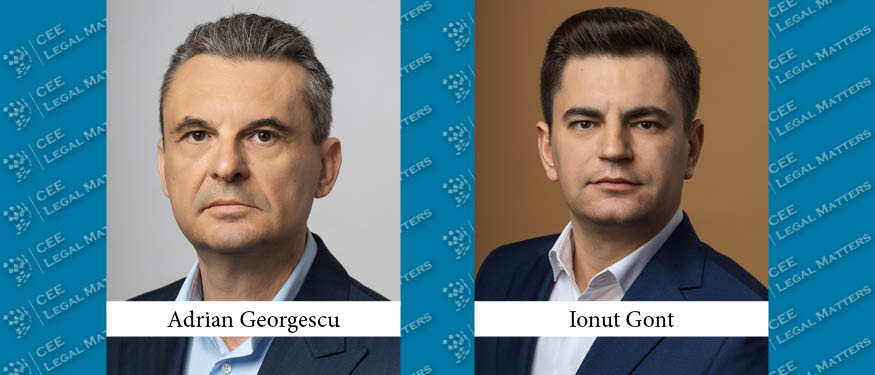Albania, driven by its commitment to align with European Union standards, has embarked on a comprehensive journey to harmonize its financial legislation with EU directives, particularly in the realm of capital markets. At the forefront of this effort stands Law 56/2020 “On Collective Investment Undertakings” (Albanian CIU Law), a pivotal piece of legislation that encompasses the passporting of foreign investment funds into Albania. This landmark law, coupled with the recent enactment of Regulation no. 37 (Passporting Regulation) and Regulation no. 38 (Distribution Regulation) by the Financial Supervisory Authority (FSA), lays down the groundwork for the processes of passporting and distribution within the Albanian financial landscape.
Harmonization is the Name of the Game in Albania: A Buzz Interview with Renata Leka of Boga & Associates
Albania is going all in on harmonizing with European Union standards – especially in the realm of intellectual property, according to Boga & Associates Partner Renata Leka. Despite plenty of ground left to cover, the Boga Partner is optimistic the country will see "significant progress in the coming years."
A&O Shearman Advises Lenders on EUR 99 Million Financing for Karavasta Solar
A&O Shearman has advised the European Bank for Reconstruction and Development, the International Finance Corporation, and Intesa Sanpaolo Bank and its subsidiaries on a EUR 99 million financing to Karavasta Solar for the development, construction, and operation of a 140-megawatt power plant and a 19-kilometre overhead transmission line located in Fier municipality, Albania. Norton Rose Fulbright reportedly advised Karavasta Solar.
Selih & Partnerji, Polenak, Maric & Co, Kalo & Associates, BDK Advokati, and Papazoski and Mishev Advise on NLB Skladi Acquisition of Generali Investments
Selih & Partnerji, Polenak, Maric & Co, Kalo & Associates, and BDK Advokati have advised NLB Skladi on its acquisition of Generali Investments in North Macedonia. Papazoski and Mishev, an independent law firm in cooperation with PwC, advised Generali Investments.
Albania: Examining Albania’s Real Estate Landscape – A Legal Perspective
Albania’s real estate market has undergone a significant transformation in the last decade, attracting global attention across the residential, commercial, and tourism sectors. This surge in interest is a result of the country’s economic and legislative reforms, political stability, successful justice reform implementation, and progress in the EU accession process. These factors collectively present investors with promising opportunities in Albania’s dynamic and evolving market.
CEELM Deal of the Year Awards Banquet: And the Winner Is…
On the evening of April 25, 2024, the Deal of the Year Awards Banquet brought together, under the same roof, top-tier lawyers from Central and Eastern Europe's leading law firms in the region in Warsaw.
Albanian New Law on Gambling
On 15 February 2024, the Albanian Parliament adopted law no. 18/2024 “On some amendments and addendums on law no. 155/2015 ‘On gambling in the Republic of Albania’, as amended” (the “Gambling Law”). The amendment overturned a five-year ban on sports betting activities in Albania and entered into force on 27 March 2024.
Albania's Renewables, Start-Ups, and Gaming Revival: A Buzz Interview with Anisa Rrumbullaku of CR Partners
In Albania, renewable energy, start-ups, and gaming all present significant market opportunities according to Partner Anisa Rrumbullaku of CR Partners in cooperation with Karanovic & Partners, with significant changes being implemented that stand to not only revitalize the economy but also create a hotbed for legal expertise.
Competition Laws and Regulations in Albania
Contributed by Boga & Associates.
Albania: Insolvency and Restructuring
Albania underwent a substantial overhaul in its approach to insolvency and restructuring proceedings with the enactment of Law No. 110/2016 “On Bankruptcy” in 2017. This legislative stride replaced a prior law that had been in effect since 2002, often leading to disputes and difficulties in uniform enforcement.
New Draft Law on Competition: Exploring Key Amendments
Competition law reform in Albania is underway, marked by several important changes to Law no. 9121, dated 28.07.2003, “On Protection of Competition” (“Competition Law”). Within the context of harmonizing with the EU acquis, last November, the Albanian Competition Authority (“ACA”) launched a public consultation phase for the proposed amendments to the Competition Law (“Draft Law”). However, the final version of the Draft Law has not yet been submitted to Parliament.
Amendments to Law on Strategic Investments: Deadline for Applications Extended until December 2027
The Law no. 55/2015 “For strategic investments in the Republic of Albania”, determines the procedures and rules applied by state bodies for the examination, approval, and support by the Albanian government of strategic investments in Albania, both domestic and foreign. The deadline for obtaining ‘Strategic Investment’ status, after being postponed several times, expired on 31 December 2023, however now a new amendment pending approval by the parliament, aims – among other things – to extend the benefits of the law until 31 December 2027.
Albania Implementing New Income Tax Law
Albania has officially implemented law no. 29/2023, dated 30.03.2023 “On Income Tax”, effective starting from 1 January 2024; repealing and replacing law no. 8438, dated 28.12.1998 “On Income Tax”, as amended. Despite successive amendments over the years, law no. 8438 is deemed outdated and inadequate in addressing the contemporary principles and methodologies associated with personal income tax and corporate income tax (the “New Income Tax Law”).
Olsi Coku Makes Partner at Kalo & Associates in Tirana
Albania's Olsi Coku has been appointed a Partner with Kalo & Associates in Tirana, in a promotion round that also included Armando Toslluku's appointment as a Special Counsel and Frensis Nakuci's promotion to Senior Associate.
Albania Positions Itself for Growth: A Buzz Interview with Alban Shanaj of Tashko Pustina
Albania breaks new ground in its energy and financial sectors as it moves towards renewable energy and market liberalization, while significant changes are afoot in payment services and tax law, according to Tashko Pustina Partner Alban Shanaj, all of which point squarely toward a coming period of dynamic growth and opportunity.
Drakopoulos Joins South East Legal Alliance
Drakopoulos has become a part of the South East Legal Alliance, thus expanding the network’s reach to Athens, Bucharest, and Nicosia.
Albania Proposes New Legislation on Trademarks and Patents
Albania is currently contemplating the revision of its existing legislation on industrial property currently regulated by one single law i.e., Law no. 9947, dated 7.7.2008 “On Industrial Property”, as amended. The existing law governs all domains of industrial property and business secrets, including patents of invention, utility models, trademarks, industrial designs, and geographical indications.
The Debrief: January 2024
In The Debrief, our Practice Leaders across CEE share updates on recent and upcoming legislation, consider the impact of recent court decisions, showcase landmark projects, and keep our readers apprised of the latest developments impacting their respective practice areas.































